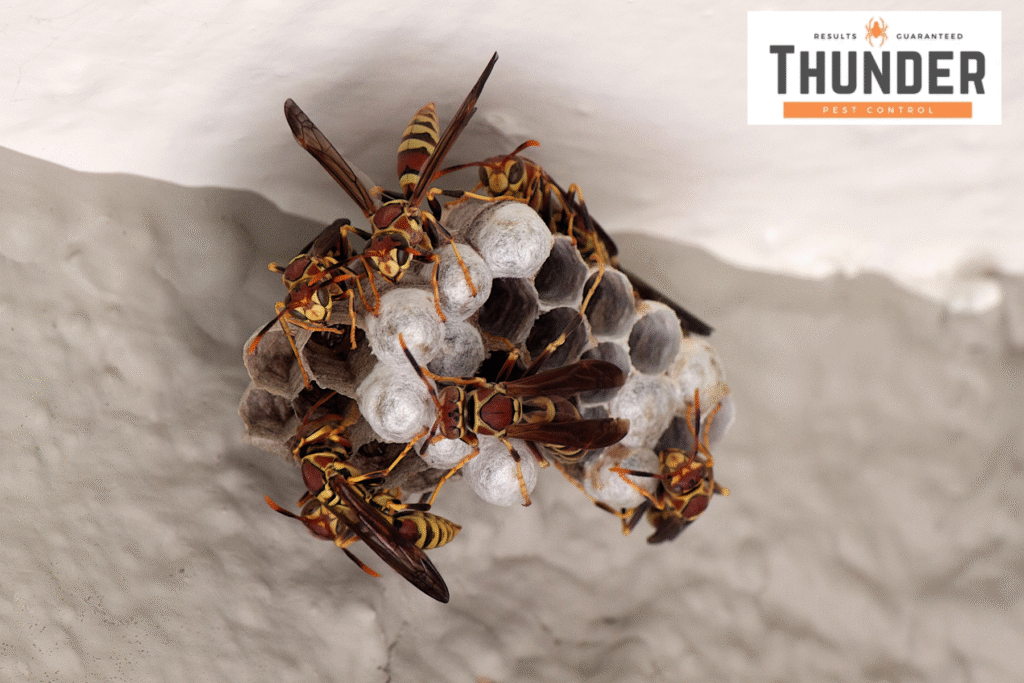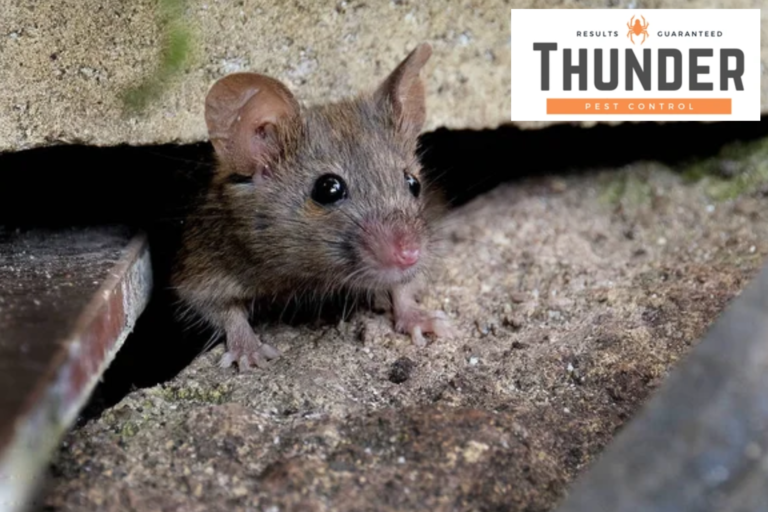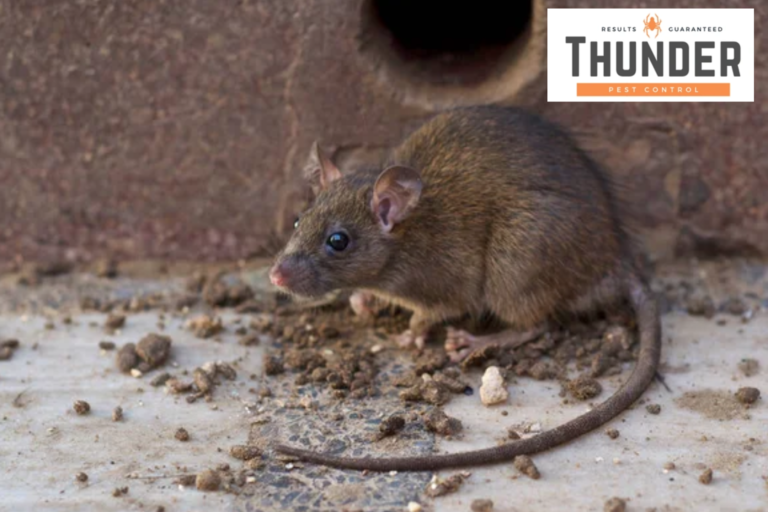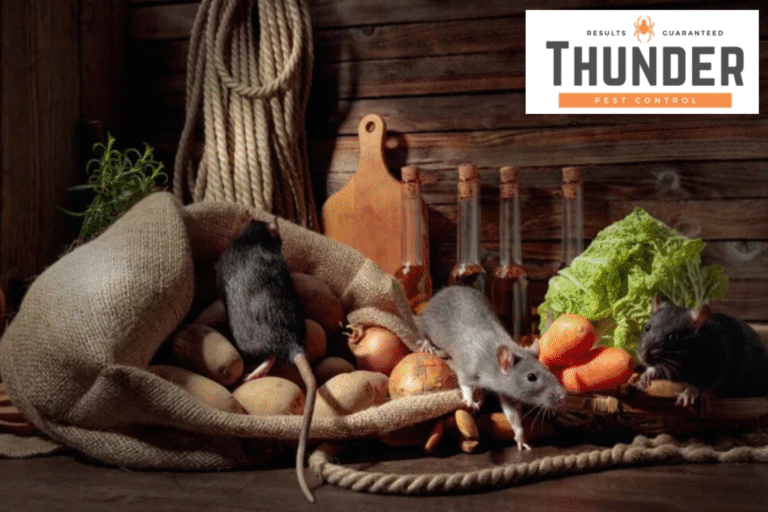Wasps may play a role in natural pest control, but no one wants them nesting around their home or business. Known for their aggressive behavior when provoked, wasps can pose serious risks to both people and pets, especially those with allergies. Preventing a wasp infestation is much easier and safer than dealing with one after it’s fully established.
This guide breaks down the most effective strategies to stop wasps before they settle in. Whether you’ve spotted a few scouting around your yard or you’re just planning ahead for spring and summer, these proactive tips will help you stay one step ahead.
Why Are Wasps Attracted to Your Property?
Before you can prevent an infestation, it’s important to understand what draws wasps to your space in the first place. Wasps are attracted by:
- Food Sources: Protein-rich foods and sugary substances like fruit, soda, and nectar.
- Shelter: Eaves, rooflines, attics, sheds, and overhangs are ideal nesting spots.
- Water: Standing water sources like birdbaths, leaky faucets, and clogged gutters.
- Insect Activity: Wasps are predatory and feed on other insects like caterpillars, spiders, and flies.
By minimizing access to these resources, you reduce your chances of a wasp colony taking hold.
Inspect Early, Inspect Often
Early spring is the best time to start looking for signs of wasp activity. This is when queen wasps, who survived the winter, begin scouting for nesting sites. Regular inspections allow you to catch and remove small nests before they grow into dangerous colonies.
Focus your inspections on:
- Roof eaves and soffits
- Porch ceilings and patio covers
- Window frames and shutters
- Trees, bushes, and shrubs
- Outdoor play structures, grills, and sheds
If you notice paper-like material or round combs beginning to form, it may be the start of a nest.
Eliminate Food and Water Sources
Wasps are motivated by survival, and access to food and water encourages them to stick around. Keep your yard and home as uninviting as possible by following these practices:
- Seal trash cans tightly. Keep lids closed and clean up food residue.
- Remove fallen fruits. Pick up rotting fruit in gardens or under trees.
- Clean up after outdoor meals. Wipe down tables and rinse drink containers.
- Fix leaks. Leaky hoses and irrigation systems create the moisture wasps need.
- Drain standing water. Clean birdbaths and unclog gutters to eliminate water buildup.
Use Natural Scents to Deter Wasps
If you’re looking for natural wasp repellent options, certain essential oils and herbs have been shown to deter wasps without harming the environment. Peppermint oil is particularly effective. Mix a few drops with water and dish soap in a spray bottle and apply it around entry points, patio furniture, and other high-risk areas.
Other natural deterrents include:
- Clove and lemongrass oils
- Vinegar and water mixtures
- Cucumber slices (especially peels)
- Fresh herbs like thyme and basil
While these won’t kill wasps or stop a full infestation, they can help prevent them from nesting in the first place.
Secure Outdoor Structures
Wasps commonly nest in sheds, barns, and under decks. Prevent infestations by sealing small cracks and crevices, and keeping doors or access panels closed when not in use.
Use fine mesh screens to cover vents and gaps. Caulk around windows and ensure that your siding and roofing are in good condition. These barriers help reduce wasp entry and nesting opportunities.
Limit Nesting Opportunities
To discourage wasps from starting a nest on your property:
- Hang decoy wasp nests in spring. Wasps are territorial and typically won’t build a nest near another one.
- Use wasp repellent sprays or granules around high-risk areas.
- Install tight-fitting lids on compost bins and avoid composting meat or sugary foods.
- Trim vegetation regularly to reduce shaded areas that appeal to wasps.
Also, keep in mind that overgrown shrubs and tree limbs that touch your house offer wasps easy access to siding, gutters, and vents so it’s best to keep those trimmed back.
Be Mindful with Outdoor Decor
Certain decorative elements around your home can unintentionally invite wasps. Wind chimes, hanging lights, and hollow objects may serve as attractive nesting sites. Birdhouses and open mailboxes have also been known to harbor small nests.
Periodically check these structures throughout the warmer months and relocate or inspect them regularly to avoid surprises.
Educate the Household
Everyone in your household should understand what to do (and not do) when they see a wasp. Teach children to avoid swatting at them, which can provoke aggression. Keep food covered during picnics and avoid using sweet-smelling lotions or perfumes outdoors.
Make sure family members and guests know how to respond to potential stings and have a plan in place, especially if anyone has known allergies.
Call in the Pros Before It Becomes a Problem
Sometimes, even the best prevention strategies aren’t enough. If you notice increased wasp activity or find a nest forming, it’s time to reach out to local pest experts. Don’t try to remove a wasp nest yourself especially if it’s large or located in a difficult-to-access area. Wasps can sting multiple times and often attack in groups when they feel threatened.
If you’re searching for wasp control near me, trust a licensed professional who can handle the situation safely and effectively. Early treatment and removal ensure your property stays safe, especially during peak wasp season.

Prevention Works Year-Round
While wasps are most active during late spring and summer, prevention is a year-round effort. Winter and early spring are ideal times to perform repairs and remove potential nesting spots before the queens emerge. Summer is the time to stay vigilant and eliminate food sources. And fall is when you should inspect attics and sheds before storing seasonal items.
Regular property maintenance combined with professional Lawton pest control services is your best bet for staying ahead of wasp infestations.
About Thunder Pest Control
Thunder Pest Control proudly serves Lawton, OK, and surrounding communities with trusted pest management solutions. From safe and effective wasp control near me to comprehensive treatment plans for spiders, ants, roaches, and rodents, we tailor our approach to fit your specific needs.
We focus on long-term results, helping residents protect their homes, families, and pets from unwanted invaders. Whether you’re dealing with a single wasp nest or need full-service pest control Lawton OK, our experienced technicians are here to help.




